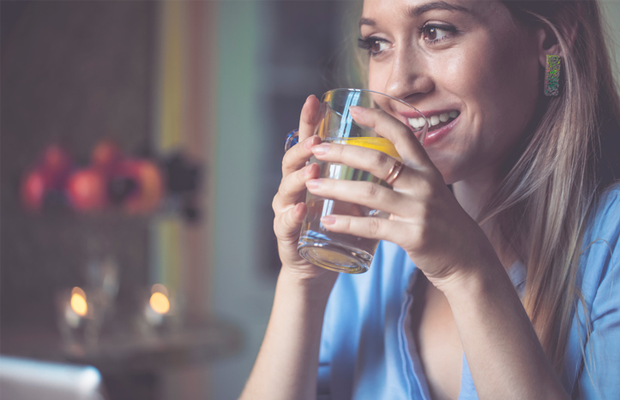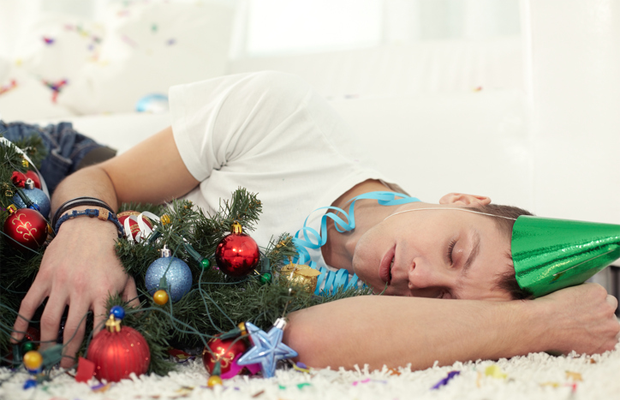Parents should only allow two healthy snacks a day, a health body says in new year drive.
Category Archives: Health Tips
‘Wearing a stoma is part of my life and it is a great one’
Coming to terms with an ileostomy can be hard, but it can also lead to new opportunities.
Health24.com | 5 ways to potect your hearing this New Year’s Eve
Hearing loss is no longer a trait of old age. According to the World Health Organization (WHO) about 1.1 billion young people between the ages of 12 and 35 years of age are at risk of hearing loss.
The WHO says this is due to exposure to loud noise in recreational environments.
New Year’s Eve gatherings are often hubs of loud noise – here are five ways to protect your hearing during the celebrations.
1. Wear earplugs
According to Dangerous Decibels, a music concert can generate more than 110 decibels (dB) which is almost twice the amount generated during a conversation.
Exposure to loud music can damage your hearing within two minutes. If you find yourself at a music concert this New Year’s Eve, use earplugs to protect your hearing and prevent ringing ears long after the concert has ended.
2. Take short breaks
The countdown to New Year’s Day only lasts about an hour but the loud conversations may leave your ears feeling irritated.
While normal conversations take place at around 60dB, group conversations can be louder at 70dB.
At parties, group conversations can generate more than 85dB of noise, which is the daily recommended safe level. Should conversations become louder, you may be exposing your ears to harmful noise levels.
Save your hearing by moving to a quieter spot to give your ears a much-needed break.
3. Keep your ears dry

Planning on having an afternoon swim before hitting the town in the evening?
Invest in some swimmer’s earplugs to prevent swimmer’s ear (otitis externa), which can cause temporary hearing loss. Swimmer’s ear occurs when bacteria found in lakes and oceans enters the ear canal leading to pain.
Swimming earplugs and thorough drying of the ear can prevent this painful ear infection.
4. Lower the music
Playing some party jams on the way to a New Year’s Eve braai may be a great way to get you into the festive mood. But make sure you protect your ears and avoid listening to music at more than 60% of the volume.
Similar to being at a concert, loud music in your car or earphones can cause permanent hearing loss.
5. Avoid fireworks

While fireworks may be one of the best parts of New Year’s Eve celebrations, they can damage your ears.
Fireworks generate between 150dB to 175dB of noise – an airplane produces as much noise as 150dB on take off. Don’t want to miss the show? Then find spot that is at least 15 to 20 metres from the fireworks.
If you prefer to be up close, pop some earplugs in to protect your hearing.
Image credits: iStock

Health24.com | Getting a vasectomy may give your sex life a huge boost
Vasectomies may take away your ability to have children, but they also give something back: more sex, according to new research.
A study on 294 couples by researchers at Germany’s Frankfurt University found that men who had vasectomies reported having more sex, a better sex drive and stronger erections and orgasms.
Their female partners also reported an increase in sexual arousal. The researchers concluded that the boost in overall bedroom antics could be attributed to the “absence of anxiety of unwanted pregnancies”.
Read more: This guy had a vasectomy and then got his wife pregnant twice
Four out of 10 men surveyed said their sex lives had “significantly improved” after a vasectomy and 12.4% reported having sex more often, according to the Daily Mail.
Four-and-a-half percent of guys reported having less sex since the snip – but still, the report concluded that “the sexual satisfaction of men improved” and that it “did not diminish” for their female partners.
Read more: The most surprising side effect of a vasectomy
The researchers did note that there may have been some selection bias in the results. Only 30% of couples who received the researchers’ survey responded, and the team thinks it may be possible that couples who were having great post-vasectomy sex would be more likely to want to tell the scientists about it.
Read more: How a vasectomy works
The Frankfurt study largely backs up data that separate researchers at Stanford found in a study of nearly 6 000 men in 2015. The Stanford study found that men with vasectomies had sex 5.9 times per month, compared to 4.9 times for intact guys.
The author of that study, Dr David Guo, told Men’s Health that he thought couples would be more likely to get busy now that the risk of an unplanned pregnancy is completely off the table.
For a 20-minute procedure (with a few days of soreness), that’s not too bad.
Your sex life is just one of the many things to consider before going under the knife. But if you do, it could provide an extra spark in the bedroom.
This article was originally published on www.menshealth.com
Image credit: iStock
NEXT ON HEALTH24X

Health24.com | 6 things that happen to your body when you don’t have sex for a while
According to 2016 research, millennials are having less sex than any generation since the 1920s. This is a bad thing for a few reasons:
1. Sex is fun, and you should be having as much of it as you can; and
2. They’re all missing out on the many well-documented health benefits of having sex regularly.
Read more: Why sex could be your best prescription
Of course, that’s not always possible for various reasons – maybe your partner is out of town, or you’re just in between relationships.
But what actually happens to your body when you don’t have sex for a long time? Here are six of the most surprising side effects.
1. Your rhythm gets thrown off the next time you have sex
You know that old expression, “if you don’t use it, you lose it?” Science suggests that to a degree, that might be true.
A 2008 study in the American Journal of Medicine concluded that men in their 50s, 60s, and 70s who weren’t sexually active were more likely to suffer from erectile dysfunction.
This makes some sense: on an intellectual level, navigating all those arms and legs and erogenous zones can get pretty confusing, so imagine trying to navigate the core mechanics of intercourse after months and months of not having sex at all.
Luckily, there’s an easy solution: even if you don’t have a partner, the research suggests ejaculating regularly can help alleviate some of these effects.
Read more: 10 annoying things you do during sex
2. If you don’t masturbate, your risk of prostate cancer goes up
If your dry spell extends to the self-pleasure zone – that is, if you’re not masturbating at all – research says that’s unhealthy. In fact, multiple studies have pointed to the conclusion that “high ejaculation frequency” (a.k.a. jerking off at least 4.6 to seven times a week) is linked to a lower risk of prostate cancer.
So get out those baby wipes and turn on Pornhub for the sake of your own health.
Read more: 11 shocking facts you never knew about masturbation
3. Your blood pressure can spike
A great night of lovemaking can make literally everything else in the world feel better. Even if your boss won’t stop breathing down your neck or if you’re under a bunch of deadlines, you’re consistently getting laid, so all of that stuff seems super manageable.
Science says that’s not a coincidence. In fact, a 2006 study in the medical journal Biological Psychology found that people who were having regular sex had lower levels of blood pressure than those who weren’t.
Read more: 11 ways you can lower your blood pressure naturally – no meds required
4. You get more stressed out
Apparently, there’s a scientific reason for that. Neuroscientist Dr Debra W Soh said in an interview with Men’s Health that during orgasm “endorphins are released that can help to improve your mood. So, if you tend to use sex as a way of coping with stress, a dry spell can be doubly frustrating.”
5. Your immune system gets weaker
Orgasms are incredibly beneficial to your immune system, as psychologists Carl Charnetski and Francis Brennan Jr found.
They conducted a study where they asked patients who were having sex once or twice a week to provide saliva samples. Those samples were found to contain an extremely high concentration of the common-cold busting antibody immunoglobulin A.
Who knew that extremely close contact was a net-positive in terms of preventing illness?
Read more: 23 cheats to bulletproof your body
6. Your work performance might slip
Most dry spells have two parts: the part where you’re insanely horny and turned on by even a slightly curvaceous frying pain; and the part where you’re down in the dumps and can’t even be motivated to get off the couch.
Apparently, that can even spill over into your employment satisfaction. An Oregon State University study found that couples with an active sex life were much happier at work.
“Maintaining a healthy relationship that includes a healthy sex life will help employees stay happy and engaged in their work, which benefits the employees and the organisations they work for,” says Keith Leavitt, an associate professor at the college.
There you go, guys: feel free to blame missing that meeting on not getting laid. I’m sure your boss will understand.
This article was originally featured on www.menshealth.com
Image credit: iStock
NEXT ON HEALTH24X

Take three steps before visiting GP, public urged
Patients are being urged to consider other options before making an appointment with their family doctor.
Health24.com | Could your salon visit make you sick?
Holiday parties and gatherings, or simply pampering yourself for the new year ahead, mean more trips to nail and hair salons for some.
But if you’re not careful, you might end up picking up more than you bargained for…
Health issues after a salon visit
In a recent small survey of nail and hair salon clients, more than two-thirds said they’d had one or more health issues after visiting a salon. These included skin problems, fungal infections and respiratory symptoms.
“When it comes to safety, the most important thing is being aware of the dangers present in salons,” said Lindsey Milich, lead author of a study based on the survey. She’s a research analyst at the Rutgers School of Public Health in Piscataway, NJ.
Nail and hair salons generally offer a wide range of services such as manicures, pedicures, applying artificial nails, waxing, hair styling and hair colouring.
However, many of these services involve exposure to chemicals that can be hazardous for the client or nail technician or stylist, the researchers said. These products can cause allergic reactions and skin irritations.
In addition, because many of the tools are reused from one client to another, it’s possible to pick up bacterial and fungal infections if proper sterilisation techniques are not followed.
What the survey entailed
The survey included 90 patrons of nail and hair salons from three counties in New Jersey. Nearly all (94%) were women. Survey participants were asked about health symptoms, as well as their knowledge of potential hazards and safety practices in salons.
About 42% they’d developed skin issues and 10% reported fungal infections after salon visits. These problems included itchiness to the hands or face, cuts, burning or tingling sensations, pain or redness around the nail area, athlete’s foot, finger or toenail fungus, and nail discoloration.
One in six survey participants reported respiratory symptoms, including runny nose, itching or watery eyes, trouble breathing and headache.
Across the board, the percentages for reported problems were higher for nail salons than hair salons.
Health of nail technicians also at stake
Though the salon clients reported experiencing these problems after a salon visit, Milich noted that the study did not prove that these issues were caused by the salon.
Milich was also involved in a second study, which looked at the health of nail salon technicians. That study – led by Derek Shendell from the Rutgers School of Public Health – included 68 workers from 40 nail salons whose owners agreed to their participation.
Most of the nail salon workers were Asian women who said they’d had eye, nose, throat or skin symptoms they believed were related to their jobs.
The study found that most workers had received training only in English, not in their primary language. The researchers suggested that salon workers needed “comprehensive chemical use training”, and urged that more research be done on the extent of salon workers’ exposure to hazardous materials.
The study involving salon clients was published in the November/December issue of the Journal of Chemical Health and Safety. The study on nail salon workers was published last month in the Journal of Occupational and Environmental Medicine.
Protect yourself
For those who frequent salons, what can you do to safeguard your health?
- First, check that the salon is clean and licensed by your state’s cosmetology board.
- Check that the salon properly sanitises any hair or nail tools that are reused from client to client.
- Make sure the equipment is sterilised in an autoclave, which is a device that heats the tools to kill bacteria and looks like a small oven.
- Check whether your salon uses a disposable plastic liner in the foot bath.
- It’s generally better to have your cuticles pushed back than cut, but if sterile equipment is used, it’s okay to have your cuticles cut.
- If you do get an injury when they’re cutting, be sure to clean it well and apply an antibiotic ointment to the cut. “If you see any swelling or redness at the site of the cut, or you get an injury on the nail bed, see your doctor,” Milich said.
- People with diabetes need to be extra cautious when getting pedicures. Experts recommend having your nails and cuticles cut by a podiatrist, rather than at a beauty salon.
And if you are still not convinced about the dangers of your local salon, Health24 reported earlier this year about a woman who suffered horrific third degree burns after visiting her salon for a routine pedicure and callous removal treatment.
The moral of the story? Go to trusted, accredited institutions and seek medical help immediately if you notice any symptoms.
Image credit: iStock

Health24.com | 5 tips to avoiding a hangover
It’s the end of the year and the start of all the festivities, which usually means you’ll overindulge and wake up on the wrong side of a hangover.
But, there is some good news – you can avoid waking up hungover.
1. Hydrate, hydrate, hydrate
A hangover is often caused by the diuretic effect alcohol has on your body, which means it increases your body’s production of urine. If you don’t replace the fluids you are losing, you will wake up dehydrated.
Prof James C Garbutt, of the University of North Carolina at Chapel Hill School of Medicine, NC, told Medical News Today that when you finish an alcoholic drink, have a glass of water before the next round. The water helps dilute the concentration of alcohol in your blood and helps prevent dehydration.
Make sure the last thing you drink before you go to bed is water.

2. Cut down on sugar
We’re talking about both sugary drinks and food. Dr Carolyn Dean, Medical Advisory Board Member of the Nutritional Magnesium Association, told Medical Daily in an email, “I will avoid sugar and desserts as much as possible because sugar taxes the adrenal glands and the immune system. When adrenal function is impaired or weak, a person may suffer from low blood sugar, low blood pressure, low body temperature and fatigue/exhaustion.”
3. Take your vitamins
Vitamins can help ensure your body retains the water you consume. Add supplements that contain magnesium, milk thistle, vitamins B and C to your daily regime.
“Alcohol depletes a broad range of vitamins, amino acids, fatty acids, enzymes, proteins and minerals from your body. The kingpin to this depletion is magnesium, which is the anti-stress mineral that most people are deficient in. This mineral regulates 600-700 enzyme actions in the body,” Dr Dean said.
“Nutritional magnesium prevents platelet aggregation, which helps to avoid the thickened blood and tiny clots that can cause blood vessel spasms and the pain of a tension headache or hangover and can lessen the damage to the brain.”
4. Eat something substantial
If your stomach is empty when you start drinking, your body will absorb the alcohol far quicker. It’s a good idea to fill up on a meal packed with carbs, protein and fat.
According to Prof Garbutt, “Eating food is an important element in reducing drinking and reducing the risk of intoxication. Eat a meal before you take your first sip of alcohol, and continue to take in food as the night wears on.”
And don’t wait – if you only start to eat when you begin to feel tipsy, the food will have no effect on preventing a hangover.

5. Check the colour
Avoid mixing your drinks and stick to one drink for the night is the usual advice. But, it’s also important to check the colour of your liquor.
According Harvard Health Publishing, research has shown that clear liquors (vodka or gin) tend to cause hangovers less often than darker liquors (whiskey or red wine).
The reason? Although the main form of alcohol is ethanol, darker liquors contain congeners (chemically related compounds), such as methanol.
Dr Robert Swift, a researcher at the Providence Veterans Affairs Medical Center in Rhode Island who coauthored paper on hangovers in 1998, says that although the same enzymes process ethanol and methanol, methanol metabolites are toxic so they may actually make your hangover worse.
Oops, you woke up hung over…
Perhaps the festivities got away from you and you forgot to follow these tips. There are few things you can do to ease your hangover.

Take two ibuprofen before you go to bed and two more when you wake up to help ease your pounding headache. But avoid swallowing aspirin – alcohol can worsen gastritis (inflammation of the stomach lining), while aspirin can increase your risk of gastric erosion and bleeding.
“Put the two together and there might be increased risk of gastrointestinal bleeding,” Prof Garbutt says.
Prof Garbutt also says you need to rehydrate. He suggests a sports drink – it will help you rehydrate while replacing salt and electrolytes you’ve lost through all the peeing.
Image credits: iStock

World first for dog’s broken leg
A new treatment that has saved a dog’s broken leg is to be tried on humans.
Health24.com | These state patients can now pick up meds at private pharmacies
The new, recently introduced Central Chronic Medicines Dispensing and Distribution (CCMDD) programme for patients on antiretrovirals and other chronic medication has already proven to be a major benefit.
People with chronic illness are speaking highly about the programme that allows them to collect their medication without visiting public facilities and spending time in long queues.
Weight off clinics
The Gert Sibande District in Mpumalanga has implemented National Health Insurance (NHI) programmes since 2011, but the new CCMDD programme has been hailed as the best by most clients.
It is aimed at reducing the number of clients flocking to clinics and hospitals, and reducing patient waiting times.
The programme makes use of private pharmacy outlets as the pick-up points for chronic medication, with the main objective being to improve access to antiretrovirals and chronic medicines for stable patients reliant on the public healthcare sector in South Africa.
Patient Gloria Shabangu of Ermelo said, “Before the CCMDD implementation, with my hours at work, I use to pay people to collect my medication at the clinic. But sometimes the nurses would refuse to allow this and if that happened I would sometimes go days without medication. This has caused me to default twice but now with the CCMDD programme, the defaulting days are over. I don’t stress myself anymore because my time is flexible and it takes less than 20 minutes for me to get to a Clicks pharmacy to collect my ART and go back to work.”
Less time-consuming
Patients visiting pharmacies for their medication find their treatment programme easier to manage, there are no queues and they no longer have to wait four hours or more just to be served.
“With this CCMDD we no long have to stress about running out of medication,” said Phindile Msizi.
Vusi Buthelezi, another patient on the programme, said he now only has to visit his clinic once every five months for a blood test to check his CD4 count and viral load.
“I can confidently say NHI is working in the Gert Sibande District,” he said. – Health-e News
Image credit: iStock
NEXT ON HEALTH24X








